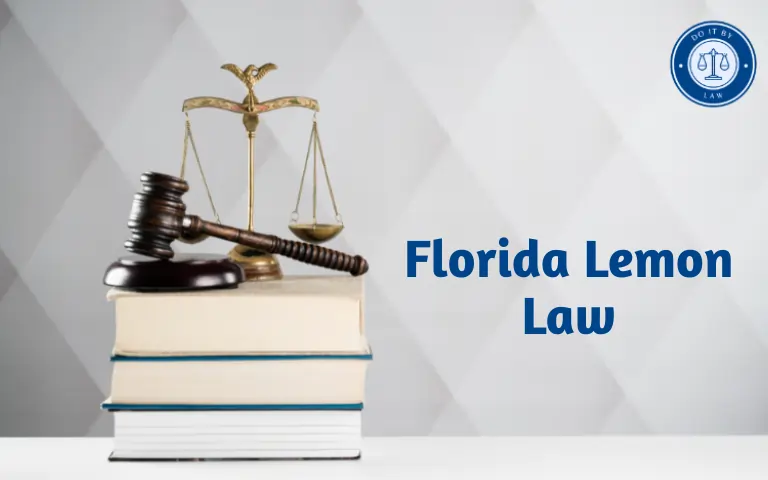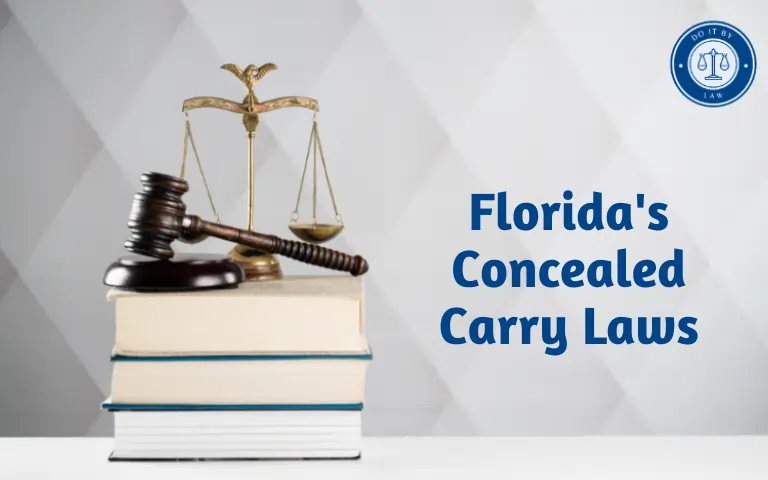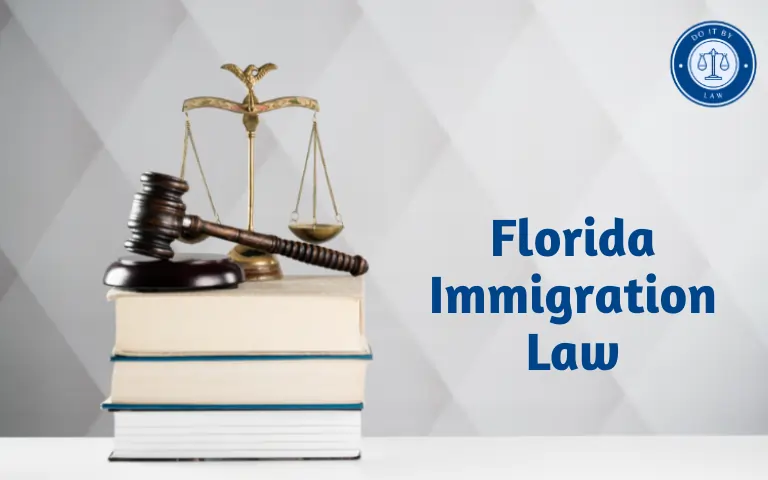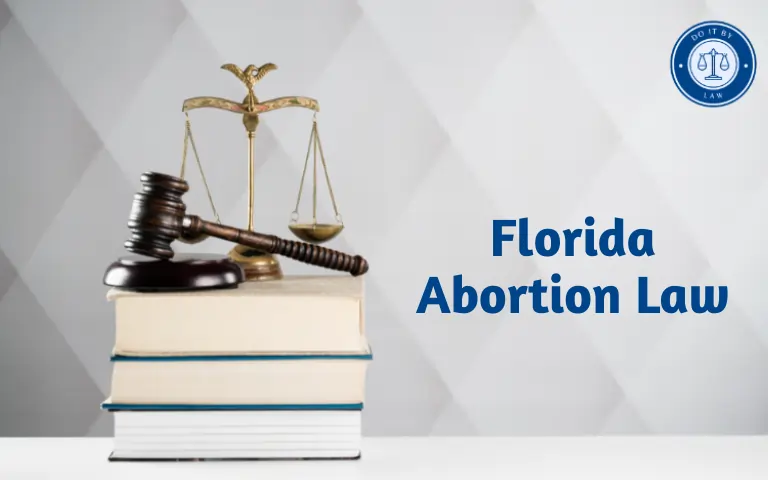Florida Lemon Law: Your Rights for New & Used Cars Explained
Buying a car should bring peace of mind—not costly repairs. But what happens when your “new” or “used” vehicle turns into a money pit?
If you’ve asked, “what is the Florida Lemon Law?” or you’re unsure if your vehicle qualifies, you’re not alone. Thousands of Florida car buyers face similar issues. This guide breaks down Florida Lemon Law protections, including laws for used cars, filing tips, and how to find help.
👉 Know more about your legal options and what to do next if your vehicle might be a lemon.
What Is the Florida Lemon Law?
The Florida Lemon Law is a state law that protects consumers who buy or lease a new car (and in some cases, certain used cars) that turns out to be defective or repeatedly breaks down. If your vehicle can’t be repaired after multiple attempts or spends too much time in the shop, you may be entitled to a replacement or a refund under this law.
A Simple Breakdown of the Law
Imagine buying a new car and within a few weeks, the engine stalls, the transmission slips, or your brakes fail—again and again. You take it in, they “fix” it, but the same issue comes back. That’s where the lemon law in Florida kicks in. It gives you a way to hold the manufacturer accountable when a car doesn’t meet basic quality and safety standards.
This law is officially called the Motor Vehicle Warranty Enforcement Act, but most people just call it the Florida Lemon Law.
🧾 Who Does the Florida Lemon Law Apply To?
✅ New Car Buyers
If you bought a new vehicle in Florida that came with a manufacturer’s warranty, you’re covered for the first 24 months from the delivery date.
✅ Leased Vehicles
The law also applies to leased cars, as long as they are new and covered by a manufacturer’s warranty at the time of lease.
✅ Some Used Cars
Florida’s lemon law usually does not cover used cars, but there are exceptions:
- If the used car is still under the original manufacturer’s warranty, and
- The defect appeared within the first 24 months from the original delivery date.
So if you’re buying a used car, it’s important to check whether the warranty is still active and if lemon law protections may apply.
💡 Need clarity on whether your vehicle qualifies?
Know your rights and get legal help now →
Does Florida Have a Lemon Law for Used Cars
Short answer: Yes — but only in specific cases.
There’s a common misconception that the Florida Lemon Law protects all used car purchases. In reality, it only applies to used vehicles that still fall within the original manufacturer’s warranty and were purchased or leased within the first 24 months of the vehicle’s original delivery.
❗ Misconception: “I bought a used car, so I’m automatically covered.”
This is not true. The lemon law in Florida was designed primarily for new cars, but there is a narrow path for used cars if:
- The car is still under the manufacturer’s warranty.
- The vehicle issue began within the first 24 months of the car’s original purchase (not your purchase).
- The issue substantially impairs use, value, or safety, and persists after reasonable repair attempts.
So, if your used vehicle is past the 24-month window from its original sale, or is no longer under the factory warranty, the Florida Lemon Law likely won’t apply.
🧩 Used Car Lemon Law Requirements in Florida
| Requirement | Must Meet This Condition |
|---|---|
| Original purchase date | Less than 24 months ago from first owner |
| Warranty | Still under factory (not dealer) warranty |
| Defect | Major issue affecting use, value, or safety |
| Repair attempts | Reasonable number made by manufacturer/dealer |
💡 TIP: If your car doesn’t qualify under the Florida Lemon Law used car rules, you may still have options through:
- The Magnuson-Moss Warranty Act (Federal Lemon Law)
- Dealer fraud laws
- Private legal claims for breach of warranty
🔍 Want to check if your car qualifies? Download our free Lemon Law Checklist →
Who Does Florida’s Lemon Law Cover?
Florida’s Lemon Law primarily covers new and demonstrator vehicles that are sold or long-term leased in Florida. Here’s a quick breakdown of the types of vehicles and buyers covered:
| Category | Covered ✅ / Not Covered ❌ | Details |
|---|---|---|
| New Vehicles (Personal Use) | ✅ | Must be purchased/leased in Florida |
| Demonstrator Vehicles | ✅ | Test-drive models used by dealerships |
| Lease Vehicles (12+ months) | ✅ | Lessee must be responsible for repairs |
| Recreational Vehicles (RVs) | ✅ (Partial) | Only chassis and drivetrain are covered; living area is not |
| Used Vehicles (No Warranty) | ❌ | Not covered unless still under manufacturer’s warranty |
| Motorcycles | ❌ | Excluded from Florida Lemon Law |
| Off-Road Vehicles | ❌ | Not eligible |
| Heavy Trucks (10,000+ lbs GVWR) | ❌ | Commercial heavy-duty trucks are not included |
| Fleet or Business Vehicles | ❌ (If more than 3 owned) | Only businesses with ≤ 3 registered vehicles in FL are covered |
✅ Covered Vehicles
- New passenger vehicles purchased or leased in Florida
- Demonstrator vehicles (used by dealers for test drives)
- Recreational vehicles (RVs) — but only the chassis and drivetrain, not the living quarters
- Lease vehicles — if the lease is for 12 months or longer and the lessee is responsible for repairs
🚫 Not Covered
- Used cars (unless they were still under the original manufacturer’s warranty)
- Motorcycles
- Off-road vehicles
- Trucks over 10,000 lbs. gross vehicle weight
- Commercial vehicles for business or fleet use
⚖️ Who’s Protected?
- Private individuals who purchase or lease a vehicle for personal, family, or household use
- Businesses with no more than 3 vehicles registered in Florida
How to Qualify for Florida Lemon Law Protection
Understanding whether your vehicle qualifies under the Florida Lemon Law is crucial for getting compensation or a replacement. Here’s what you need to know:
📅 1. Time Limits (Legal Deadlines Matter)
To be protected under the Florida Lemon Law statute, issues must arise within the first 24 months after delivery of the vehicle.
- This is called the “Lemon Law Rights Period”
- Defects must be reported to the manufacturer or authorized service agent within this period
🔁 2. Repair Attempts (The “3 Times Rule”)
Your vehicle may qualify if:
- The same issue has been repaired at least 3 times with no resolution, or
- The vehicle has been out of service for 15 or more cumulative days due to warranty-covered issues
✅ Keep documentation of every visit to the dealership or service center for repairs.
🚗 3. Mileage Limit
There is no official mileage cap, but the vehicle must be within the 24-month window to qualify. Mileage helps prove usage and patterns if you’re filing a claim.
📜 4. The Florida Lemon Law Statute Explained
- Section 681 of the Florida Statutes governs Lemon Law
- It outlines consumer rights, manufacturer obligations, and the State-run arbitration process
👉 Link to Florida Statutes Chapter 681
🧾 Example: Does This Situation Qualify?
| Scenario | Qualifies? |
|---|---|
| A new car has a transmission issue repaired 3x | ✅ Yes |
| A leased vehicle is in the shop 20 days total | ✅ Yes |
| Used car bought “as-is” without manufacturer warranty | ❌ No |
| Motorcycle with persistent brake failure | ❌ No (Excluded by law) |
📢 Want to File a Lemon Law Claim?
Before you do, make sure you’ve documented:
- All repair orders and invoices
- The dates and mileage of each repair
- Communication with the manufacturer or dealer
📥 Download Our Florida Lemon Law Checklist PDF
How to File a Lemon Law Claim in Florida
Navigating a Florida Lemon Law claim can feel overwhelming—especially when your vehicle isn’t living up to expectations. If you’ve had repeated issues with your car and want to take action, here’s a clear guide to help you through the process, protect your rights, and potentially secure a replacement or refund.
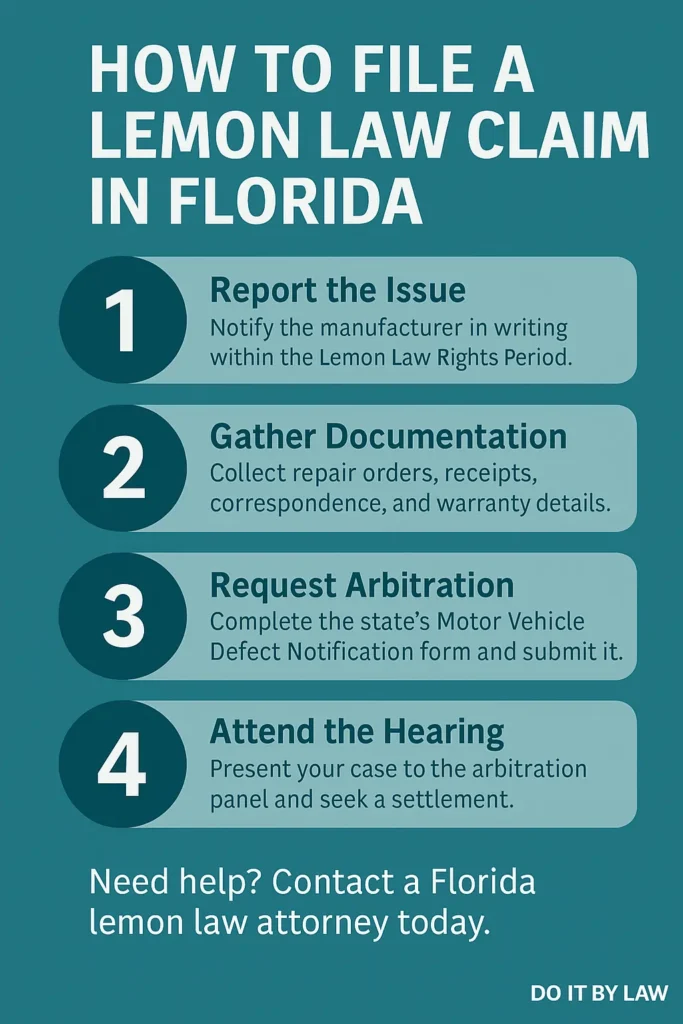
✅ Step-by-Step Process to File a Lemon Law Claim in Florida
- Keep All Records
- Maintain repair orders, invoices, and warranty documents.
- Record the dates and mileage for each repair attempt.
- Confirm Eligibility
- The issue must occur within 24 months of the delivery date.
- Car must have undergone at least 3 repair attempts or been out of service 15+ cumulative days.
- Send a Final Repair Opportunity Notice
- Officially notify the manufacturer with a Motor Vehicle Defect Notification (MVDN).
- Use certified mail with return receipt.
- Allow Manufacturer One Last Attempt
- They have 10 days to make a final repair (after receiving MVDN).
- Request Arbitration
- If the issue persists, apply to Florida’s State-run Arbitration Board.
- Must apply within 60 days after the 24-month eligibility period ends.
- Attend Arbitration Hearing
- Present all documentation, witness statements, and service records.
- Receive Decision
- If successful, you’ll be offered a replacement vehicle or a refund (minus usage fee).
📎 Need help? Contact a Florida lemon law attorney today.
📄 Required Documentation
- Purchase or lease agreement
- Vehicle warranty
- Repair invoices (with detailed notes)
- MVDN copy & mail confirmation
- Maintenance logs or journals
- Arbitration forms & manufacturer communication
⚖️ Arbitration & Settlement Overview
- State-Run Arbitration Program: Free for consumers.
- Timeline: Typically resolved within 40 days of acceptance.
- Outcome: Binding on the manufacturer, not on the consumer (you can still file a lawsuit if unsatisfied).
- Settlements: Many cases are resolved before arbitration when documentation is thorough.
Filing a claim under the Florida Lemon Law doesn’t have to be intimidating—especially when you understand the process. Don’t wait until your vehicle’s issues drain your time and wallet. Be proactive, document everything, and know your rights.
✅ Need expert guidance? Schedule a free consult with a Florida Lemon Law attorney today.
Your Rights Under the Florida Lemon Law for New Cars
If you’ve purchased or leased a new vehicle in Florida and it turns out to be a “lemon”—a car with recurring problems that impair its use, value, or safety—you may be entitled to a replacement vehicle or a refund under the Florida Lemon Law.
✅ What the Florida Lemon Law Covers for New Cars
| Category | Details |
|---|---|
| Eligible Vehicles | New passenger cars, trucks, vans under 10,000 lbs, RVs (excluding living quarters) |
| Covered Parties | Buyers, lessees, or anyone entitled to enforce the warranty |
| Warranty Period | Issues must arise within 24 months of delivery date |
| Repair Attempts | Vehicle must undergo 3 repair attempts for the same issue |
| Days Out of Service | Or be out of service for 15+ cumulative days |
| Final Repair Attempt | Manufacturer must be given a final opportunity to repair after notification |
| Filing Time Limit | Claim must be filed within 60 days after the lemon law rights period |
📜 Your Legal Rights Include:
- Replacement or Refund
You may be entitled to a comparable replacement vehicle or a full refund (minus reasonable usage fee). - Free State Arbitration
Florida provides a free arbitration process through the Florida New Motor Vehicle Arbitration Board. - Attorney Representation
While not required, many consumers choose to consult lemon law attorneys to strengthen their claims.
⚠️ Important Tips
- Document everything: repair orders, communication with dealers, warranty info, and mileage records.
- Always send your Motor Vehicle Defect Notification (MVDN) via certified mail.
- Don’t delay: Lemon Law rights are time-sensitive.
📎 Need Help? Contact a Florida Lemon Law Attorney for a Free Consultation
📚 Learn More: Florida New Car Lemon Law Statute Guide
Special Cases: RVs and Motorhomes Under Florida Lemon Law
If you’ve bought or leased a recreational vehicle (RV) or motorhome in Florida and are dealing with recurring defects, you might wonder whether the Florida Lemon Law applies. While it does cover RVs, there are special rules and limitations every owner should know.
✅ Does the Florida RV Lemon Law Apply?
Yes—but only to certain parts of the RV.
| Covered Under Lemon Law | Not Covered |
|---|---|
| Chassis | Living quarters (kitchen, bathroom, etc.) |
| Drivetrain | Furniture, appliances, decorative elements |
| Mechanical components | Add-on amenities like awnings or TVs |
| Manufacturer-installed systems | Any aftermarket modifications |
⚠️ Note: The law only applies to new RVs and defects reported within 24 months of delivery.
🔧 Common RV Lemon Issues
- Persistent engine problems or transmission failure
- Brake or steering defects
- Electrical system malfunctions
- Structural integrity issues (roof leaks, chassis misalignment)
- HVAC system defects
📝 Filing Tips for RV Owners
- Act Within 24 Months
Report any recurring issue before the Lemon Law rights period expires. - Document Everything
Keep repair invoices, communication logs, warranty info, and maintenance records. - Send a Motor Vehicle Defect Notification (MVDN)
Notify the manufacturer in writing—this triggers the final repair attempt window. - Know the Manufacturer
If your RV has multiple component manufacturers (common with motorhomes), identify which defect applies to which brand. - Use State Arbitration (if eligible)
Florida’s arbitration process is available for eligible claims at no cost.
📎 Need RV Help? Schedule a Free Case Review with a Florida Lemon Law Attorney
📄 Download: RV Lemon Law Checklist PDF
📘 Explore More: Florida RV Lemon Law Guide
Recent Changes and Updates to Florida Lemon Law (2023–2025)
Florida’s Lemon Law continues to evolve to better protect consumers dealing with defective vehicles. Below are the latest updates and changes you should know if you’re planning to file a Lemon Law claim or recently purchased a vehicle in the state.
| Change | Details |
|---|---|
| Electronic Filing | As of mid-2023, Florida now allows digital submissions for Motor Vehicle Defect Notifications (MVDN) and Lemon Law claim forms. |
| Repair Attempt Cap Clarified | Clarification in late 2023 specifies that 3 failed repair attempts or 30 cumulative days out of service qualifies your vehicle as a lemon. |
| Extended Timeline for RVs | For RVs and motorhomes, certain mechanical components now have a 24-month warranty period (instead of 12), increasing protection. |
| Used Car Protections Reviewed | A review initiated in 2024 aims to expand coverage for certified pre-owned vehicles, though this is still under consideration. |
| Consumer Arbitration Portal | A new online arbitration tracking system was launched in 2025, giving consumers real-time updates on case status. |
📌 What This Means for You
- You can now file and track Lemon Law claims online—making the process faster and more transparent.
- You may qualify for coverage even with minimal documentation if you meet the time and repair attempt thresholds.
- RV owners get longer protection, and a clearer route to resolve manufacturer defects.
🔍 Stay Informed, Stay Protected: Keeping up with these updates can help you:
- Avoid claim denial due to technicalities
- Meet deadlines and eligibility thresholds more easily
- Leverage digital tools for faster resolutions
- Understand your rights if driving a used or specialty vehicle
💡 Tip: Set calendar reminders for key deadlines like your MVDN filing window, especially if you’re tracking repair attempts or vehicle downtime.
Conclusion: Protect Your Rights Under Florida’s Lemon Law
Florida’s Lemon Law is a powerful tool for consumers who’ve unknowingly purchased or leased a defective vehicle—but only if you know how to use it. Whether you’re dealing with repeated repairs, long service delays, or you’re unsure if your vehicle qualifies, staying informed about your rights is the first step to resolution.
With recent updates improving digital access, RV protections, and clarification of eligibility rules, there’s never been a better time to take action. Whether it’s a new car, leased vehicle, or even a used one in some cases, the law is designed to protect you from unfair costs and unsafe rides.
📢 Take the Next Step:
- 📎 Download our Florida Lemon Law checklist
- 📞 Schedule a consultation with a Lemon Law attorney
- 🧾 Submit your Motor Vehicle Defect Notification (MVDN) before deadlines
Don’t settle for a lemon—know your rights, take action, and drive forward with confidence.

